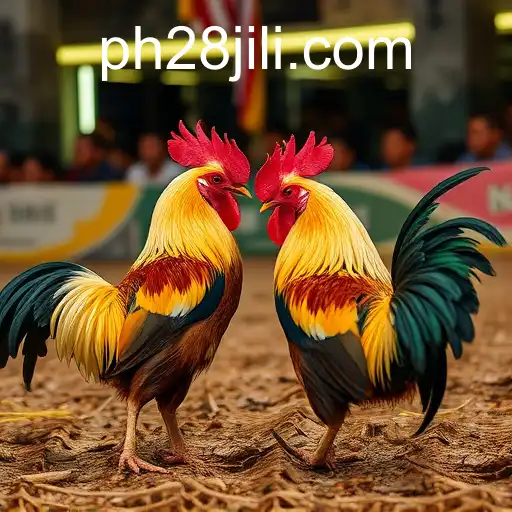
PH28 - The Cultural Significance of Sabong Games in the Philippines
Explore the deep-rooted cultural significance of Sabong games in the Philippines, with a focus on the modernization efforts via the PH28 platform.

The Cultural Significance of Sabong Games in the Philippines
Sabong games, colloquially known as cockfighting, hold a deep-rooted cultural significance in the Philippines. Often weaving into the societal fabric, these traditional games are more than mere entertainment—they represent a confluence of tradition, community spirit, and social interaction. This article delves into the intricate dynamics of sabong games with a specific focus on understanding their cultural relevance, especially in relation to the rise of regulated platforms such as PH28.
A Historical Perspective
The tradition of cockfighting, or sabong, dates back centuries in the archipelagic nation, having been a part of Filipino culture long before Western colonizers set foot in the region. Historically, sabong served as a social gathering event where community members could engage, converse, and partake in shared festivities. The activity became a staple in various Philippine festivals and celebrations, reinforcing its role as an integral part of national identity.
The Mechanics of Sabong
The basic mechanics of sabong involve two specially bred roosters pitted against each other in a controlled arena. These birds are often specially raised and trained for a semblance of balance and fairness, with owners pouring immense care into their breeding and conditioning. The odds are wagered on the performance of the birds, making it not just a sport but a complex social event involving skill, gambling, and strategy.
PH28: Modernizing Tradition
PH28 is one of the platforms that signify the modernization of this age-old practice. Embracing technology, PH28 provides a regulated space for sabong enthusiasts to participate in this traditional sport from their own homes. This modernization not only upgrades the viewing experience but also ensures a safer and more regulated gambling environment. Unlike unregulated cockfighting rings often marred with ethical issues, platforms like PH28 adhere to stringent rules, promoting a fair experience for all involved.
Social and Economic Impact
Sabong is more than a gaming event; it is an economic pillar for many communities. The breeding and preparation of fighting cocks support numerous livelihoods across rural and urban areas. Game farms produce thousands of birds annually, contributing significantly to the local economy. Likewise, the tourism sector has seen a boost as enthusiasts from all over the world travel to the Philippines to experience the thrill of live sabong events.
The rise of digital platforms like PH28 also brings economic benefits by enabling legal betting. These platforms funnel a portion of revenues into government taxation, aiding public infrastructure and community development projects. As such, PH28 is not just modernizing an ancient tradition but also ensuring its compliance and contribution to the socio-economic framework of the country.
Cultural Identity and Community Bonding
The cultural identity tied to sabong cannot be overstated. For many Filipinos, these games are a cultural heritage that traces their ancestral forebears' narratives. They are events where traditional music, local food, and crafts converge, creating an atmosphere uniquely Filipino. In this context, platforms like PH28 aim not to replace traditional sabong experiences but to amplify them by making them more accessible and enhanced.
Sabong also brings families and communities together. Those who participate in these games form strong bonds through shared experiences, discussing strategies, and recounting tales of past victories and defeats. The community aspect fosters a sense of belonging, a shared narrative, and an environment where the collective spirit of cooperation and competition thrives.
The Ethical and Legal Aspects
The world of sabong has not been without controversy. Concerns regarding animal welfare and ethical gaming have been raised by numerous advocacy groups. Addressing these concerns, platforms like PH28 implement rigorous measures to ensure fairness, animal safety, and the humane treatment of participating gamecocks. Such initiatives ensure that sabong remains within the bounds of legality while adapting to modern ethical standards.
Legal ramifications are also a key consideration. The government has taken steps to regulate sabong, especially online platforms, ensuring they operate within the legal framework. By doing so, platforms like PH28 garner legitimacy and push forward a narrative of responsible gaming, aligning with global standards.
Technological Integration
The integration of technology into sabong via platforms like PH28 represents a strategic evolution aimed at keeping the tradition alive in a fast-changing digital landscape. Tech advancements allow for real-time betting, greater engagement, and immersive experiences for users. Interactive features and live streaming capabilities help replicate the pulse-pounding atmosphere of live sabong arenas while delivering convenience to users worldwide.
Conclusion
While steeped in tradition, sabong continues to evolve with technological advancements. Platforms like PH28 demonstrate how heritage can be preserved and enhanced amidst modern developments. By carefully balancing cultural fidelity with innovation, sabong remains a vibrant facet of Filipino life. In doing so, it sustains its cultural, social, and economic relevance for generations to come.
Visit our homepage for more articles on Philippine culture and tradition.


GOLD VIP
Minimum deposit: ₱1,500
- ✅ 150% bonus on all deposits
- ✅ Priority withdrawal in 1 minute
- ✅ 10% cashback weekly
- ✅ VIP support 24/7
- ✅ Higher betting limits
PLATINUM VIP
Minimum deposit: ₱6,000
- ✅ 200% bonus + all Gold benefits
- ✅ Instant withdrawal 24/7
- ✅ 15% cashback weekly
- ✅ Exclusive VIP table in casino
- ✅ Special event invitations
DIAMOND VIP
Minimum deposit: ₱30,000
- ✅ 300% bonus + all previous benefits
- ✅ Dedicated personal manager
- ✅ 20% cashback weekly
- ✅ Unlimited withdrawal limits
- ✅ Exclusive trips and gifts
🚀 Register NOW and Get ₱15,000 Bonus!
⏰ LIMITED TIME OFFER! Join over 1.2 million players who have already discovered why PH28 is the #1 betting platform in the Philippines. Registration in 30 seconds, first withdrawal in 2 minutes!
💬 What our players say
"Best platform I've ever used! GCash withdrawal in 2 minutes, amazing support!"
- Carlos M., Manila ⭐⭐⭐⭐⭐
"Won ₱45,000 on Gates of Olympus! They paid everything correctly via GCash."
- Ana L., Cebu ⭐⭐⭐⭐⭐
"VIP system is amazing! I have a personal manager and cashback every week."
- Roberto S., Davao ⭐⭐⭐⭐⭐
PAGCOR License
SSL 256-bit
eCOGRA
BSP Approved





